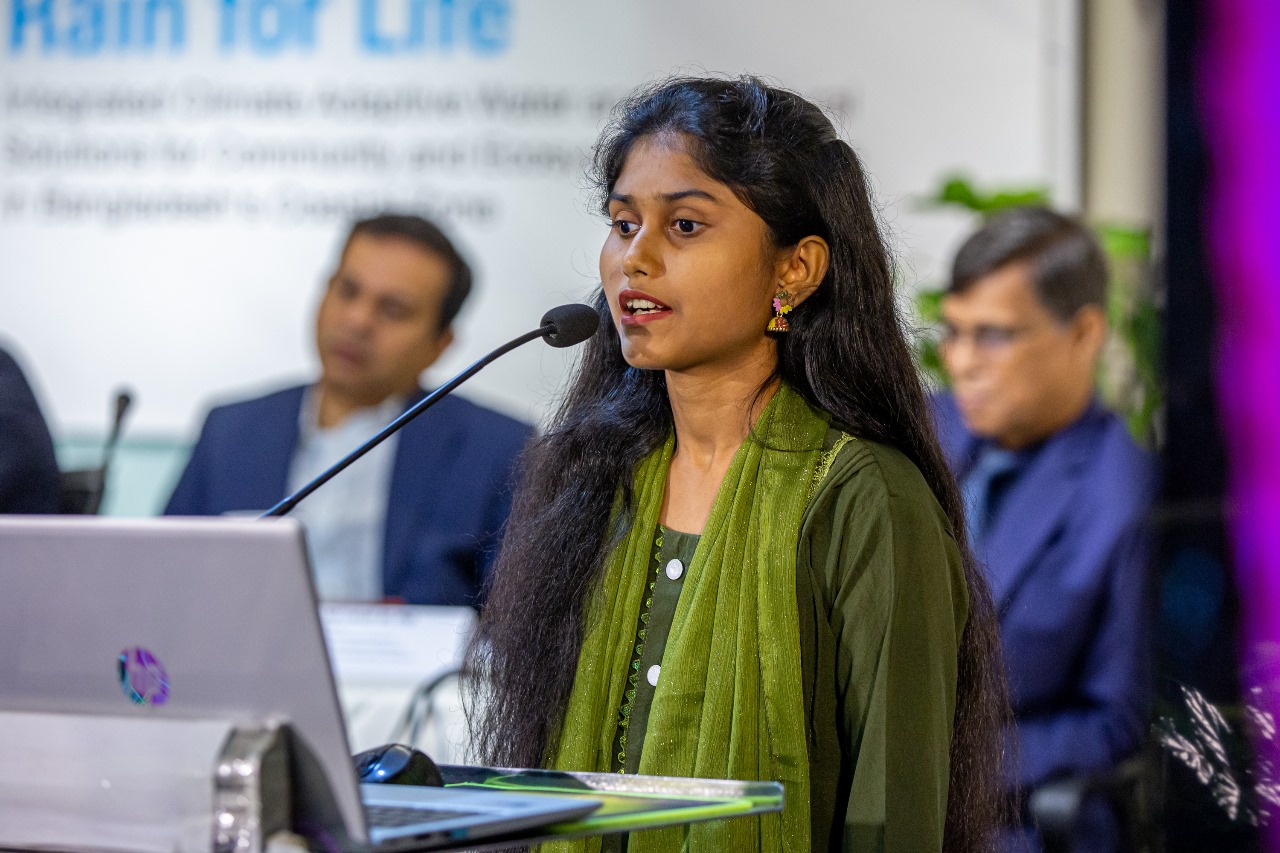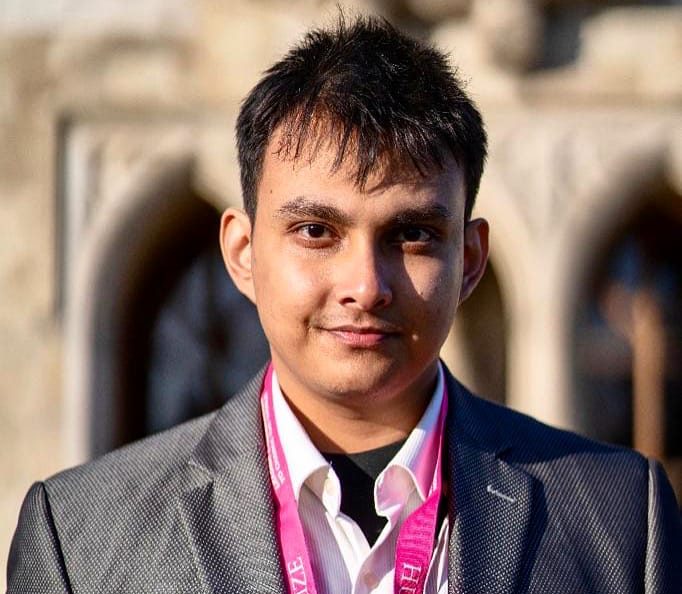BRAC and Denmark Partner for ‘Rain for Life’ to Strengthen Water Security and Climate Resilience in Coastal Bangladesh

His Excellency Christian Brix Møller, Ambassador of the Kingdom of Denmark to Bangladesh, noted that ‘Rain for Life’ project represents a shift toward holistic, inclusive, and nature-based approaches—ensuring water access not only for people, but for crops, livestock, and ecosystems. The initiative, he said, reflects the Danish government’s long-standing commitment to sustainable development and builds on Bangladesh’s globally recognised leadership in climate action.
The ambassador reaffirmed Denmark’s commitment to supporting climate-vulnerable communities and promoting green growth in Bangladesh.
BRAC, with support from the Danish Ministry of Foreign Affairs, formally launched the three-year initiative through an inception workshop held on Tuesday, 29 July 2025, at BRAC Centre, Dhaka. The ‘Rain for Life’ project aims to strengthen water security and climate resilience for over 90,000 people in the coastal upazilas of Assasuni in Satkhira, Mongla in Bagerhat, and Patharghata in Barguna.
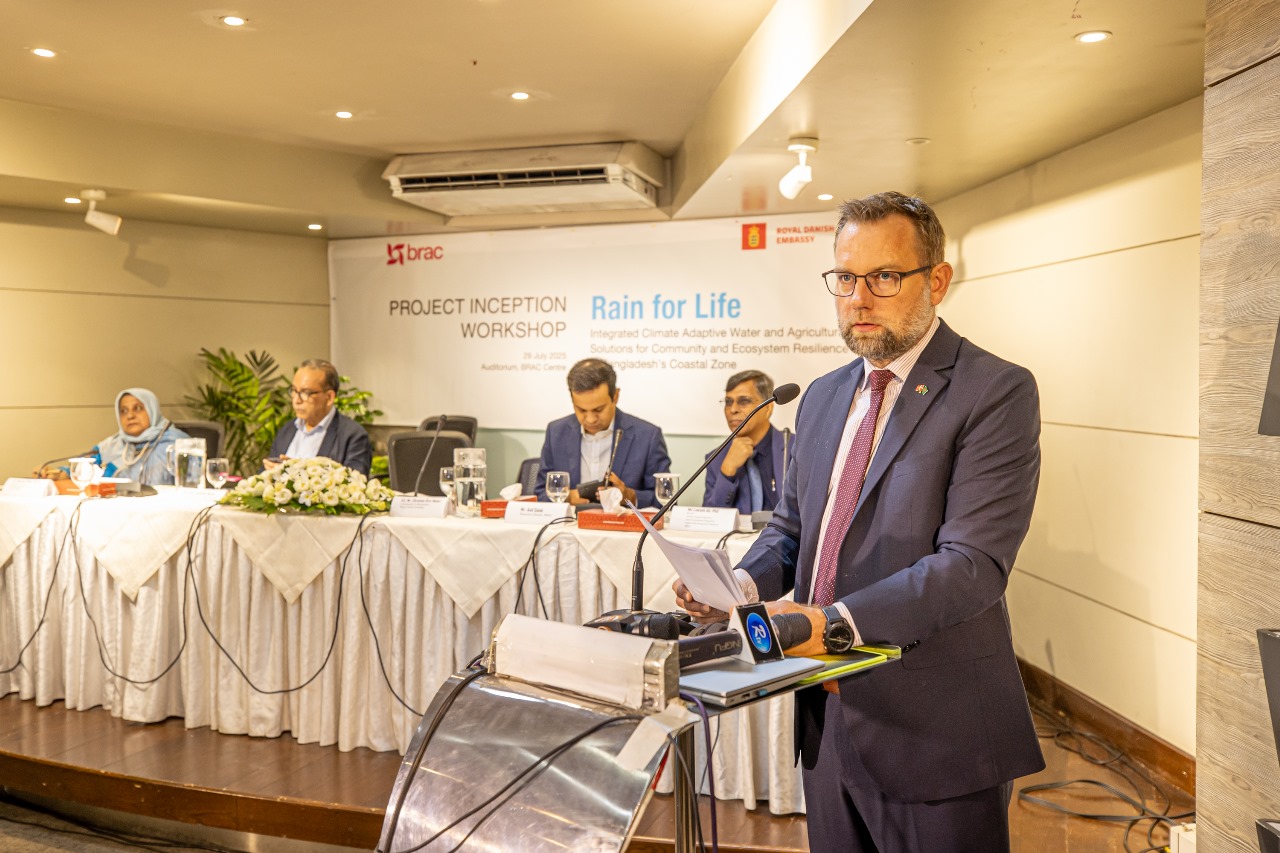
Chairing the workshop, Asif Saleh, Executive Director of BRAC, highlighted that the Rain for Life initiative is tackling the twin challenges of water and food security, recognising their deep interconnection in the face of the climate crisis.
“Water is a critical entry point, but it’s only one part of the solution,” said Saleh. “To address climate impacts effectively, we must take a comprehensive, integrated approach—one that is frugal, sustainable, locally led, and impactful, moving beyond the limits of traditional project-based responses.”
He emphasised that communities are not standing still in the face of climate threats: “They are already adapting, innovating, and finding ways to survive. With the right support, farmers and grassroots communities can become powerful agents of change.”
BRAC has already launched scalable solutions—including Amar Bon (My Forest), Adaptation Clinics, community-based models, and water entrepreneurship initiatives—to support climate resilience. He called for stronger government partnerships to expand these proven solutions and accelerate locally driven climate adaptation efforts.
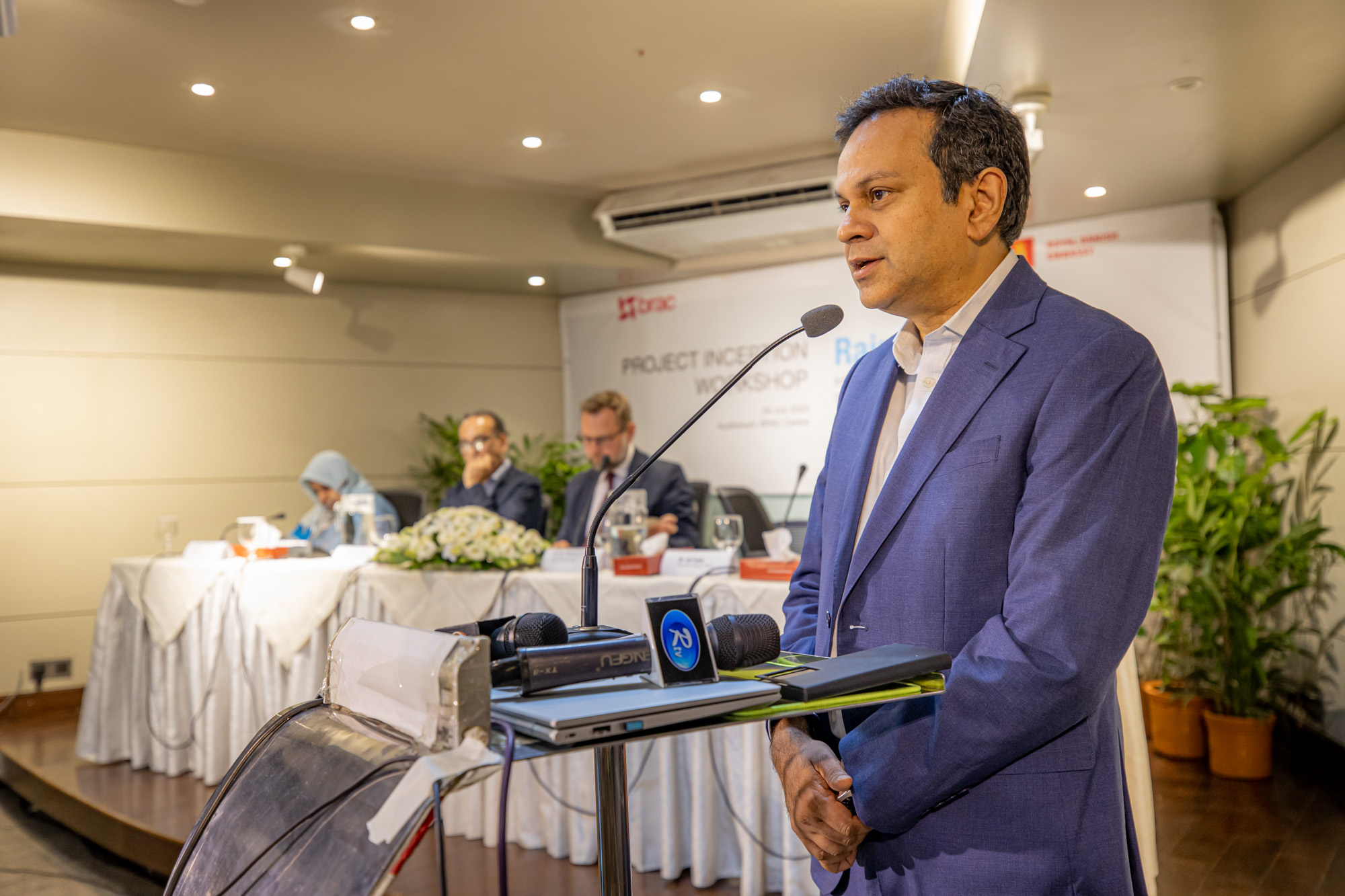
The inception workshop brought together policymakers, development partners, practitioners, and community representatives to discuss strategies for enhancing water security, food systems, and ecosystem restoration in coastal Bangladesh.
Iqbal Abdullah Harun, Secretary, Planning Division; Dr Farhina Ahmed, Secretary, Ministry of Environment, Forest and Climate Change, and Dr Nazmun Nahar Karim, Executive Chairman, Bangladesh Agricultural Research Council (BARC); also addressed the workshop as Guests of Honour. Dr Md Liakath Ali, Director of BRAC’s Climate Change Programme (CCP), presented an overview of the ‘Rain for Life’ project, while Abu Sadat Moniruzzaman Khan, Programme Head of the CCP, delivered the welcome address.
Iqbal Abdullah Harun stressed that, as mitigation is not currently within Bangladesh’s primary scope, the country must prioritise adaptation. He underscored the need for functional, rather than merely formal, coordination among government agencies and partners to ensure meaningful collaboration. He also expressed the government’s openness to scaling up initiatives like ‘Rain for Life’ to better serve climate-vulnerable communities.
Dr Farhina Ahmed noted that access to safe drinking water is a fundamental human right—one long denied to communities in Bangladesh’s coastal belt. Citing proven results from BRAC’s pilot interventions, she urged for a programmatic scale-up of the model in partnership with relevant government agencies to address persistent gaps. She praised BRAC and its frontline workers as champions of the cause and stressed that inclusive government-civil society partnerships are essential to protect vulnerable populations and prevent future loss and damage.
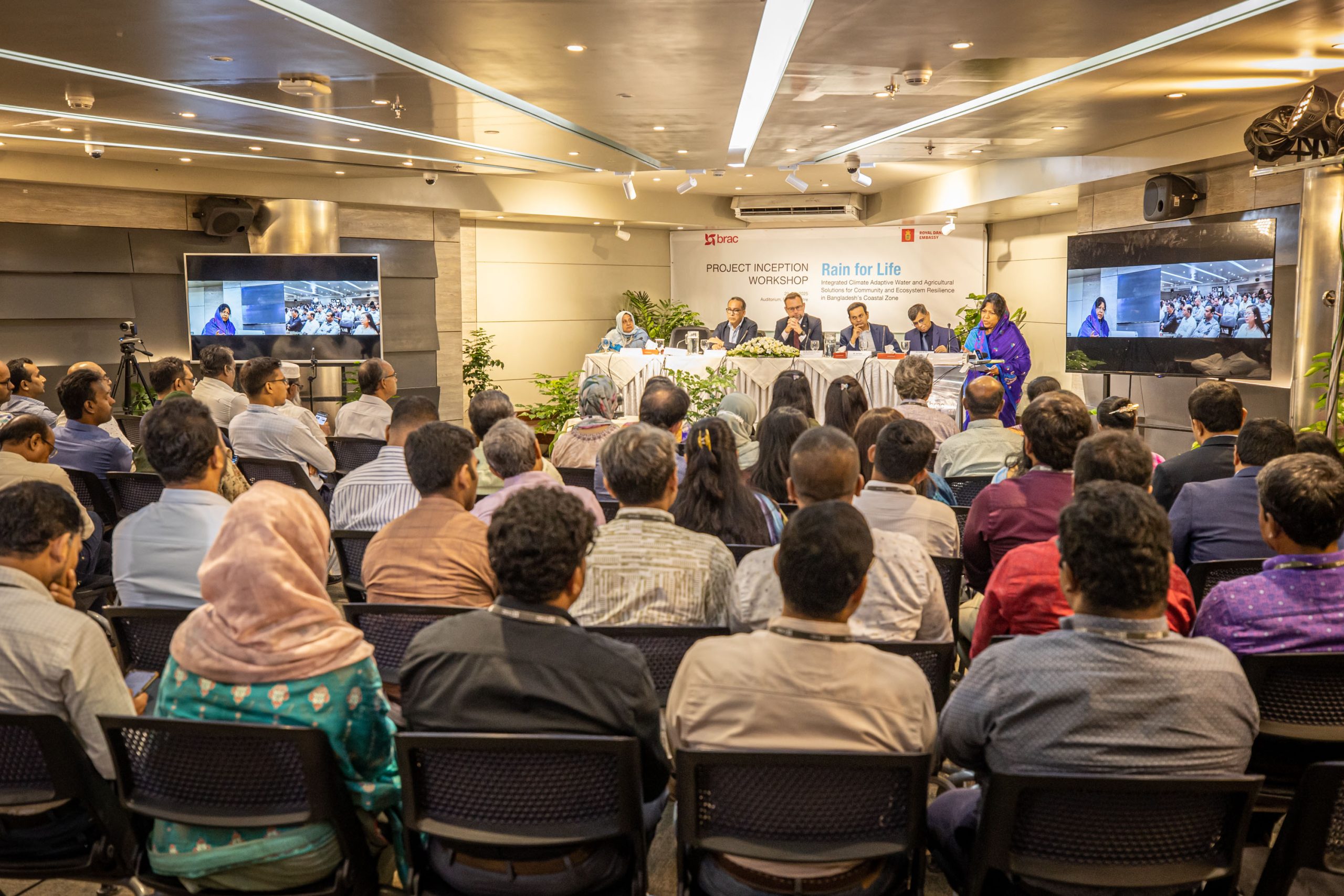
Dr Nazmun Nahar Karim highlighted that the project places women’s participation and leadership at its centre—through climate action groups, adaptation clinics, and nature-based livelihood models. True resilience, she observed, emerges when women are not merely participants, but also active decision-makers and leaders in their communities. The project, she added, is creating a platform to enable exactly that.
Dr Md Liakath Ali shared key lessons from BRAC’s Mongla Water Security Project, which, between 2022 and 2024, reached over 72,000 climate-vulnerable individuals with safe drinking water through nearly 10,000 household systems. However, as climate risks continue to intensify, he stressed the need for integrated solutions that connect water, agriculture, and nature-based approaches—an approach envisioned in ‘Rain for Life’.
Several community members from climate-vulnerable areas of Mongla shared their experiences. including farmer Jahidul Islam Bulbul, youth ambassador Wity Roy, rainwater harvesting participant Sipra Vakto, and water committee leader Sipra Halder. They spoke about issues such as rising salinity, freshwater scarcity, and the growing threat of displacement, underscoring the urgent need for inclusive, locally-led solutions like ‘Rain for Life.’
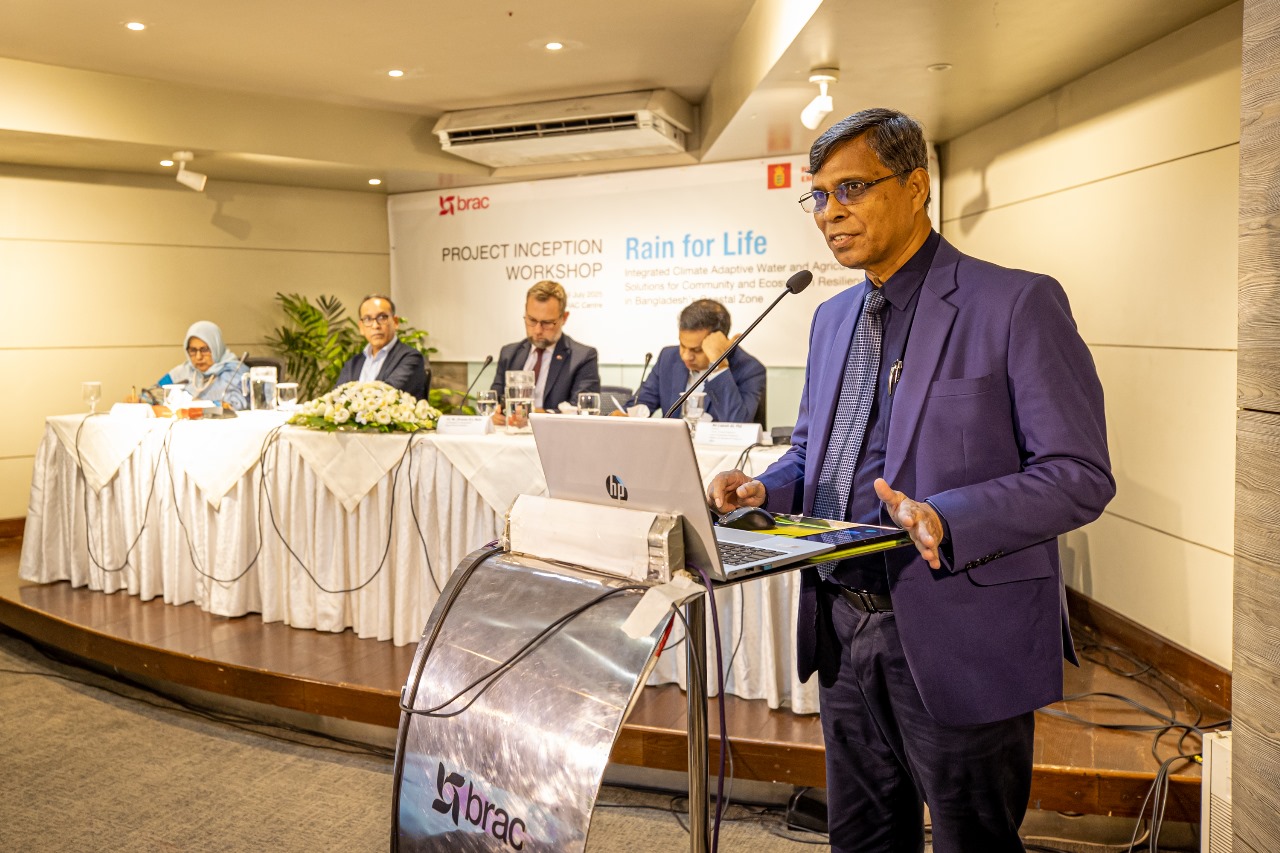
Implemented between January 2025 and December 2027, the ‘Rain for Life’ project will focus on household and community-level rainwater harvesting, surface water treatment, and the promotion of climate-adaptive agricultural practices. Through BRAC’s Adaptation Clinic model, smallholder farmers—particularly women—will have access to climate-resilient inputs, technologies, advisory services, and financial tools to improve food security across crop, fisheries, and livestock sectors.
Nature-based solutions, including mangrove and native species plantations under BRAC’s ‘Amar Bon’ model, will play a central role in restoring degraded ecosystems and reducing the impact of climate shocks. The project will also strengthen community engagement through Climate Action Groups and youth mobilisation, with a strong focus on women’s leadership.
